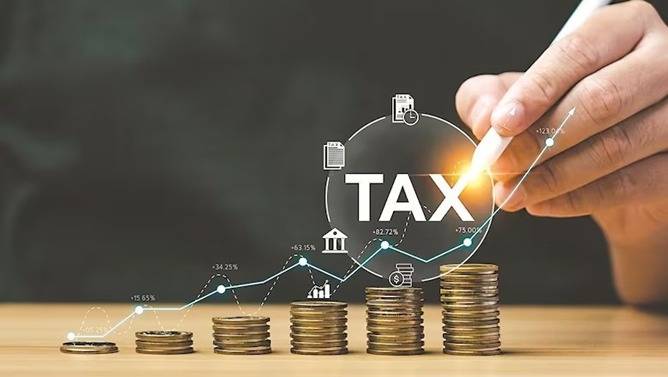The government of Pakistan is poised to revise its formula for taxing banks based on their advance-to-deposit ratio (ADR). This shift, expected to impact the banking sector significantly, aligns with broader efforts to enhance tax collection on income derived from government securities. Below, we delve into the implications and potential outcomes of this move.
Advance-to-Deposit Ratio: An Overview
The ADR represents the ratio of a bank’s total advances to its total deposits. This metric serves as a measure of liquidity utilization within banks, with regulators leveraging it to incentivize efficient lending practices. In Pakistan, a gross ADR of 50% is required to avoid additional taxation on income from government securities.
Proposed Shift to an Annual Average Formula
Current Calculation Methodology
At present, the ADR is assessed using figures as of December 31, 2024. Banks failing to meet the 50% threshold by year-end are subject to additional taxes, structured as follows:
- ADR between 40% and 50%: Additional 10% tax.
- ADR below 40%: Additional 16% tax.
Expected Changes
Analysts suggest the government may transition to an annual average ADR calculation instead of relying on year-end figures. This adjustment would likely bring consistency and mitigate seasonal fluctuations that currently affect banks’ compliance strategies.
Impact on Banks’ Profitability
Tax Implications
Should the revised formula exclude specific advances—such as loans to non-banking financial institutions (NBFIs)—while including all deposits, the ADR could drop further. This would subject banks to higher tax liabilities. For instance:
- If all banks maintain an ADR between 40%-50%, the government could collect Rs96 billion annually through a 10% tax.
- If the ADR falls below 40%, the additional tax burden could rise to Rs154 billion (16%).
Historical Precedents
The State Bank of Pakistan (SBP) has revised ADR calculations in the past, notably in 2008. At that time, it excluded certain advances and included all deposits, a move that significantly altered banking sector dynamics.
Government Objectives: Balancing Tax Revenue and Financial Stability
The government’s intent is twofold:
- Increase Revenue: By targeting approximately Rs100 billion in additional tax revenues from banks, it seeks to bridge fiscal gaps.
- Encourage Lending: By incentivizing banks to increase their ADR, the move may indirectly stimulate private-sector credit growth.
However, the proposed changes have sparked concerns among industry experts regarding profitability and sector-wide stability.
Committee Recommendations and Legislative Adjustments
A high-level committee, led by Deputy Prime Minister Ishaq Dar, has been tasked with reviewing the ADR tax framework. Its mandate includes:
- Recommending amendments to ADR calculation methods.
- Proposing necessary regulatory and legislative changes to formalize revisions.
The committee’s findings are expected within a week, and its recommendations will likely shape SBP’s next steps.
Analysts Weigh In on ADR Policy Adjustments
Sectoral Impacts
Awais Ashraf, Director of Research at AKD Securities Limited, warns that excluding advances to NBFIs from ADR calculations could negatively affect bank profitability. Similarly, Saad Hanif, Head of Research at Ismail Iqbal Securities, predicts an increased tax burden for banks with lower ADRs.
Broader Economic Effects
Adjustments in ADR calculations could compel banks to reevaluate their asset allocation strategies, potentially diverting funds from government securities to higher-risk private-sector lending.

